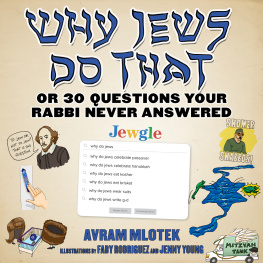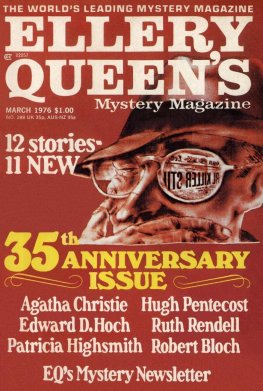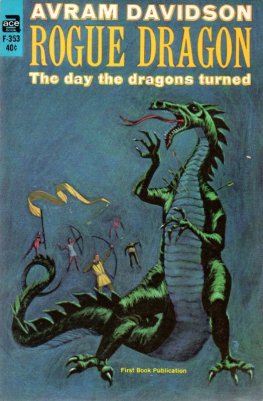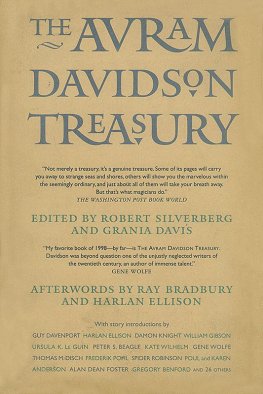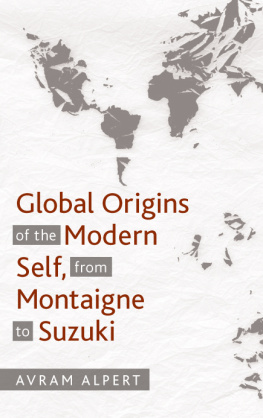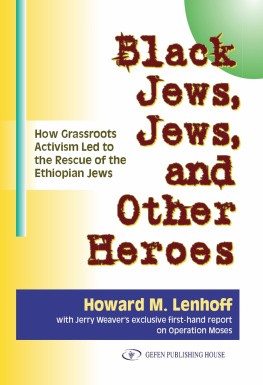Avram Mlotek - Why Jews Do That
Here you can read online Avram Mlotek - Why Jews Do That full text of the book (entire story) in english for free. Download pdf and epub, get meaning, cover and reviews about this ebook. year: 2020, publisher: Skyhorse, genre: Religion. Description of the work, (preface) as well as reviews are available. Best literature library LitArk.com created for fans of good reading and offers a wide selection of genres:
Romance novel
Science fiction
Adventure
Detective
Science
History
Home and family
Prose
Art
Politics
Computer
Non-fiction
Religion
Business
Children
Humor
Choose a favorite category and find really read worthwhile books. Enjoy immersion in the world of imagination, feel the emotions of the characters or learn something new for yourself, make an fascinating discovery.
- Book:Why Jews Do That
- Author:
- Publisher:Skyhorse
- Genre:
- Year:2020
- Rating:4 / 5
- Favourites:Add to favourites
- Your mark:
- 80
- 1
- 2
- 3
- 4
- 5
Why Jews Do That: summary, description and annotation
We offer to read an annotation, description, summary or preface (depends on what the author of the book "Why Jews Do That" wrote himself). If you haven't found the necessary information about the book — write in the comments, we will try to find it.
Why Jews Do That — read online for free the complete book (whole text) full work
Below is the text of the book, divided by pages. System saving the place of the last page read, allows you to conveniently read the book "Why Jews Do That" online for free, without having to search again every time where you left off. Put a bookmark, and you can go to the page where you finished reading at any time.
Font size:
Interval:
Bookmark:

What Steph Curry is to the three-pointer, Avram Mlotek is to rabbi-ing. Let him and this bookbe your guide to a deeper understanding of Judaism.
Bari Weiss
Author of How to Fight Anti-Semitism and staff editor and writer for The New York
Times
If you want a Judaism for Dummies with a shmear of snark and potty mouth, this is the book for you.
Jackie Hoffman
Emmy-nominated comedian and Fiddler On The Roof In Yiddishs Yenta, the Matchmaker
Rabbi Avram Mlotek draws people into Jewish life with his enthusiasm, his warmth, his music, and his understanding that people are often embarrassed to ask even the most basic questions. Here, he makes those questions fun and accessible to all.
Eric Fingerhut
President, Jewish Federations of North America and past President of Hillel International
Learning basic information about Judaism is often ponderous and, as a result, many people never learn it. But in the capable, consistently accurate and sometimes irreverent hands of Avram Mlotek, the process becomes both fun and funny.
Rabbi Joseph Telushkin
Author of The New York Times bestseller Rebbe and Jewish Literacy
Finally! A book about Jews written entirely in questions! Is that perfect? Reb Mlotek, adank for this bukh! (Thanks for this book!)
Julie Klausner
Creator and star of Hulus Difficult People
As someone who has undergone a conversion journey to Judaism with Rabbi Avram, I can truly say that he is not an ordinary rabbi. And neither is this book. I highly recommend it to people who are seeking to learn Jewish fundamentals but in a modern, hip, and entertaining way.
Ruta Gyvyte
Lithuanian model and Instagram influencer
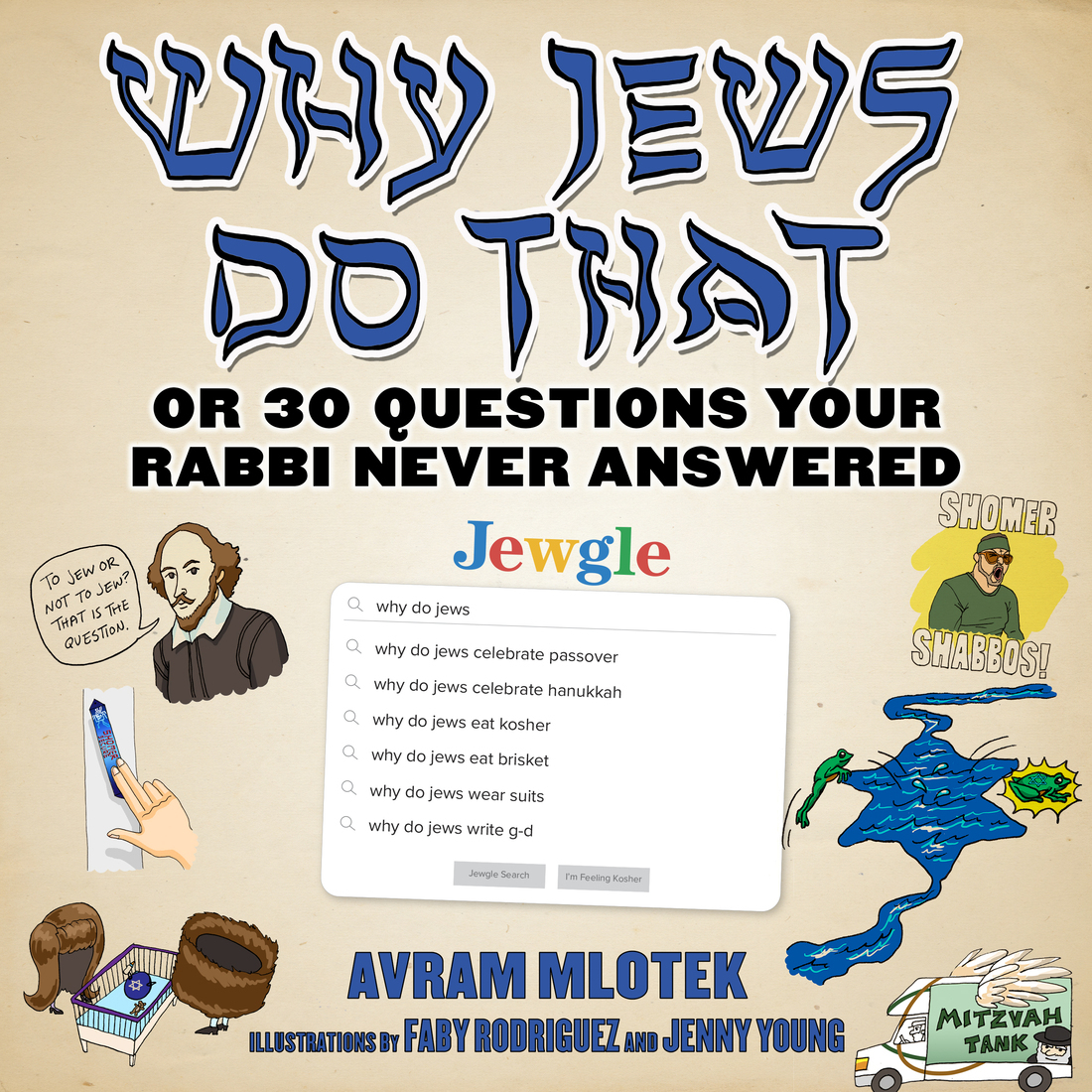
For Revaya, Hillel Yosl, and Shabtai: keep the questions coming.
Copyright 2020 by Avram Mlotek
Interior illustrations courtesy of Faby Rodriguez and Jenny Young
All rights reserved. No part of this book may be reproduced in any manner without the express written consent of the publisher, except in the case of brief excerpts in critical reviews or articles. All inquiries should be addressed to Skyhorse Publishing, 307 West 36th Street, 11th Floor, New York, NY 10018.
Skyhorse Publishing books may be purchased in bulk at special discounts for sales promotion, corporate gifts, fund-raising, or educational purposes. Special editions can also be created to specifications. For details, contact the Special Sales Department, Skyhorse Publishing, 307 West 36th Street, 11th Floor, New York, NY 10018 or .
Skyhorse and Skyhorse Publishing are registered trademarks of Skyhorse Publishing, Inc., a Delaware corporation.
Visit our website at www.skyhorsepublishing.com.
10 9 8 7 6 5 4 3 2 1
Library of Congress Cataloging-in-Publication Data is available on file.
Cover design by Brian Peterson
Cover illustrations courtesy of Faby Rodriguez and Jenny Young
Print ISBN: 978-1-5107-6049-3
Ebook ISBN: 978-1-5107-6050-9
Printed in the United States of America
Merry Hanukkah! Happy Passover! Tired of Googling every time your grandmother refers to some obscure Jewish holiday? Wish you had an easy-to-read and hilarious bathroom-like book that you arent afraid of leaving in the bathroom when your grandmother actually comes over to visit? Fear no more and welcome to Why Jews Do That? Or 30 Questions Your Rabbi Never Answered.
Like the Bible, this book has five fundamental sections: Time, Props, Purpose, Grub, and God. Unlike the Author of that canonical text, this author is a millennial who serves as a rabbi for millennials. Each question in this book is accompanied by a response, a fun fact (often tangentially related), as well as a Jew, say wha? quote where famous Jewish ideas and wizards are referenced. Cartoons and illustrations have been created by dear students of mine from Base, Jenny Young and Faby Rodriguez.
Judaism is a way of life full of questions and inquiry. From the Biblical Abraham questioning Gods righteousness to The Four Questions of Passover night, questions have always been a fundamental feature of Judaism. Why? Why not? To ask is to wonder, to question is to open ourselves to the ongoing learning of life. Answers are way less important, so maybe dont even read further. No, explanations are definitely needed; just be wary of the autocratic dogmatist rabbi in your midst.
Bottom line: this book is for you, whoever Jew are. Ask away.
RAM



Faby Rodriguez
Weve all seen The Big Lebowski, the cult classic Coen brothers film where John Goodmans character shouts, Im shomer frigen Shabbos! But besides refusing to frequent bowling alleys, what does shomer frigen Shabbos actually mean? Shabbos, or Shabbat, refers to the Jewish day of rest, the Sabbath, which occurs every week. From sundown on Friday afternoon till Saturday night when three stars emerge, Shabbos is considered a weekly holiday in the Jewish calendar. Shomer is Hebrew for guardian or keeper. Hence, shomer Shabbos: a Sabbath keeper.
So, whats a keeper? Note the first question by humankind in the Torah (Cain to God: Am I my brothers keeper?) inferring some type of responsibility or rule following. Speaking of rules, the Ten Commandments appear twice in the Torah: once in Exodus where the command is to remember the Sabbath, and once in Deuteronomy where the instruction is to keep the Sabbath. The sixteenth-century Kabbalist poet Shlomo HaLevi Alkabetz wrote, Remember and keep in one utterance, referring to how God can drop a beat and spit lyric at the same time. His liturgical poem is now recited in practically every Jewish house of worship on Friday nights.
JEW, SAY WHA?
Caesar asked Rabbi Joshua ben Chananya: Why do Shabbat foods smell so good? Said he to him: We have a special spice, Shabbat is its name.
Babylonian Talmud, Shabbat 119a
Keeping and remembering can mean vastly different things, though. Keeping usually refers to honoring the thirty-nine or refusing to go bowling, Shabbat is a differentiated and sacred time in the Jewish psyche.

@JennyYoungArt
FUN FACT!
Long before WiFi and hotspots, the Sabbath served as the ultimate energizing rejuvenator and to this day strict observers will refuse to use electronics for the Sabbath's duration of twenty-five hours.
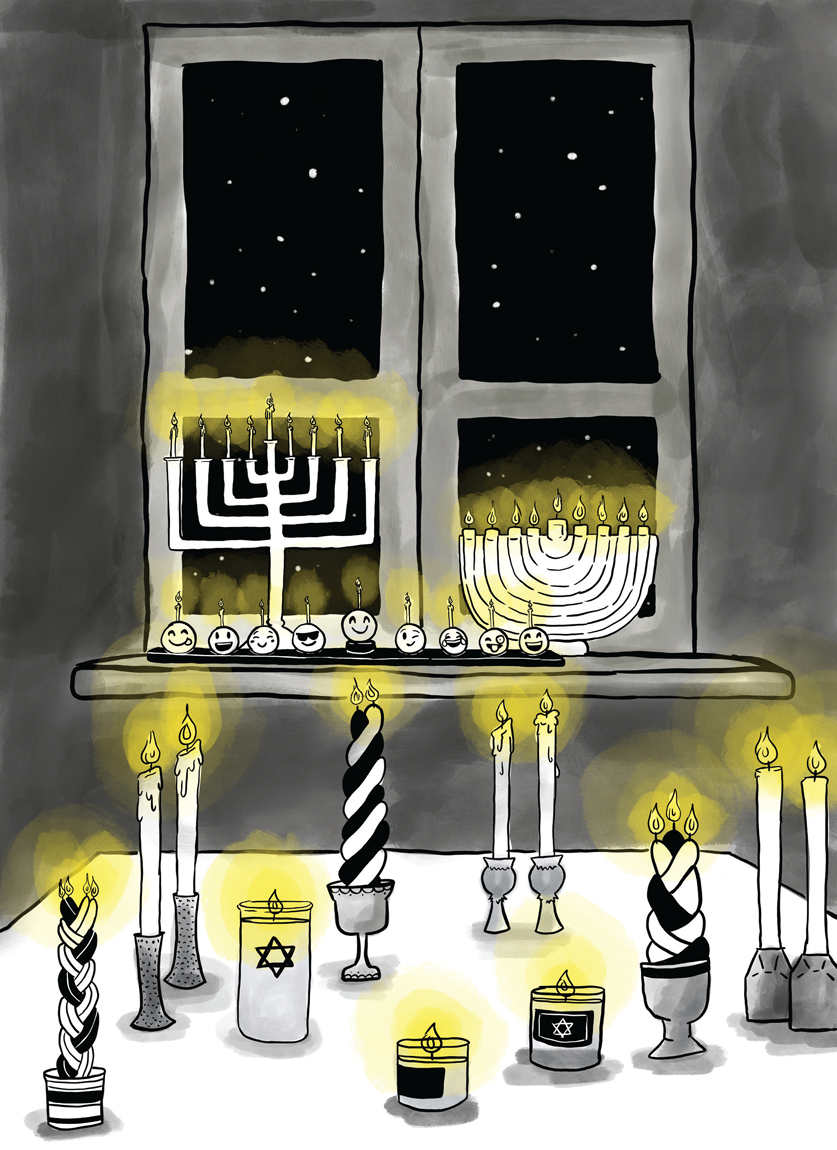
Font size:
Interval:
Bookmark:
Similar books «Why Jews Do That»
Look at similar books to Why Jews Do That. We have selected literature similar in name and meaning in the hope of providing readers with more options to find new, interesting, not yet read works.
Discussion, reviews of the book Why Jews Do That and just readers' own opinions. Leave your comments, write what you think about the work, its meaning or the main characters. Specify what exactly you liked and what you didn't like, and why you think so.

